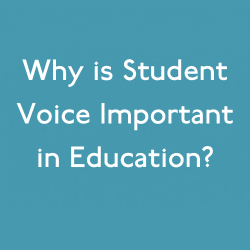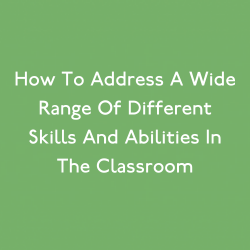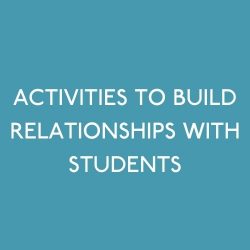The word “lonely” is often used as a synonym to describe people that we perceive as having poor social skills or being different from what we consider normal. But did you know that loneliness increases the risk of early death as much as being 100 lbs overweight or smoking cigarettes? Loneliness is recognized as a public health issue in older adults, but the research shows that loneliness in adults is rooted in experiences of neglect or isolation from childhood that create patterns of social withdrawal throughout an individual’s life. As educators, we are in a unique position to identify symptoms of loneliness in our students and give them the support and tools they need to feel safe and loved.
Identifying lonely students isn’t hard- they tend to play alone, aren’t engaged in social activities, usually don’t have at least one close friend, and avoid taking risks. If you’re practicing social emotional skills in the classroom, the student might directly say “I feel lonely.” If you hear or notice that a student feels lonely for an extended period of time (more than 2-3 consecutive weeks) this is something that should be addressed.
Helping students identify and work through feelings of loneliness isn’t simply about making new friends, but a more intentional exercise of modeling empathy and building their self confidence. Lonely students need an adult to show true care and compassion for them as individuals and to celebrate their successes and failures, something that might be missing at home. The following are a few ways you can help support your lonely students.
Introduce regular teamwork and collaboration
Having students regularly work in groups and teams not only builds relationship skills, problem solving, and collaboration skills, but it forces lonely students to work and communicate with others in a non-threatening way.
TIP: Don’t let students choose their groups, make sure that you assign them strategically and remember to change them often so that students have the chance to get to know one another.
Encourage extracurricular exploration
If you know that a student is passionate about music, sports, or board games, encourage him/ her to join an after school club or activity where the student will be doing something he/shes loves with other like-minded students. Allowing a student to improve in an area that they care about helps build self confidence.
TIP: Don’t tell the student what activity to do, rather ask questions that will allow him/ her to make the decision. Present all of the options and talk about which one would make the student most happy.
Reframe negative self statements
When a student engages in negative self-talk such as “Nobody likes to play with me” or “I suck at this game”, you can model empathy, reframe the statement, and highlight accomplishments. You can say things such as “Of course they do, remember when you played _____ with _____ last week?” and “I understand that you are frustrated because you didn’t win, is there another game that you like to play more?” -or- “I understand why you are upset, but do you remember when you did _____ really well?”
TIP: Don’t simply tell students that their thought is “wrong,” this doesn’t allow children to change their rationale and thought process, but presenting a clear example that highlights that their thought might be incorrect is much more powerful.
Work with parents
When possible, engage the student’s family. Parents might not have any idea that their child doesn’t have close friends at school or that their child reports feeling lonely. You can share your observations with parents and give them some tools to use at home that will develop social skills and empathy, such as: organizing playdates, being clear when their children make mistakes on how to improve rather than being critical, and praising efforts whenever possible, for example “I know you’ve been practicing your math skills a lot and I saw that you did better on this quiz than the last quiz, that’s great!” -or- “I know you’ve been trying to keep your room cleaner and I saw that you put away all your toys last night before going to bed, thank you!”.
TIP: Be careful about the language you use with parents. Don’t use “blaming” words or phrases that might make it sound like what they are doing at home has caused their student to feel lonely, but rather give them clear, actionable tips on how to show more empathy and build their child’s self confidence.
Sign up for Move This World’s newsletter to stay up to date on social emotional learning.
Enter your email below!










